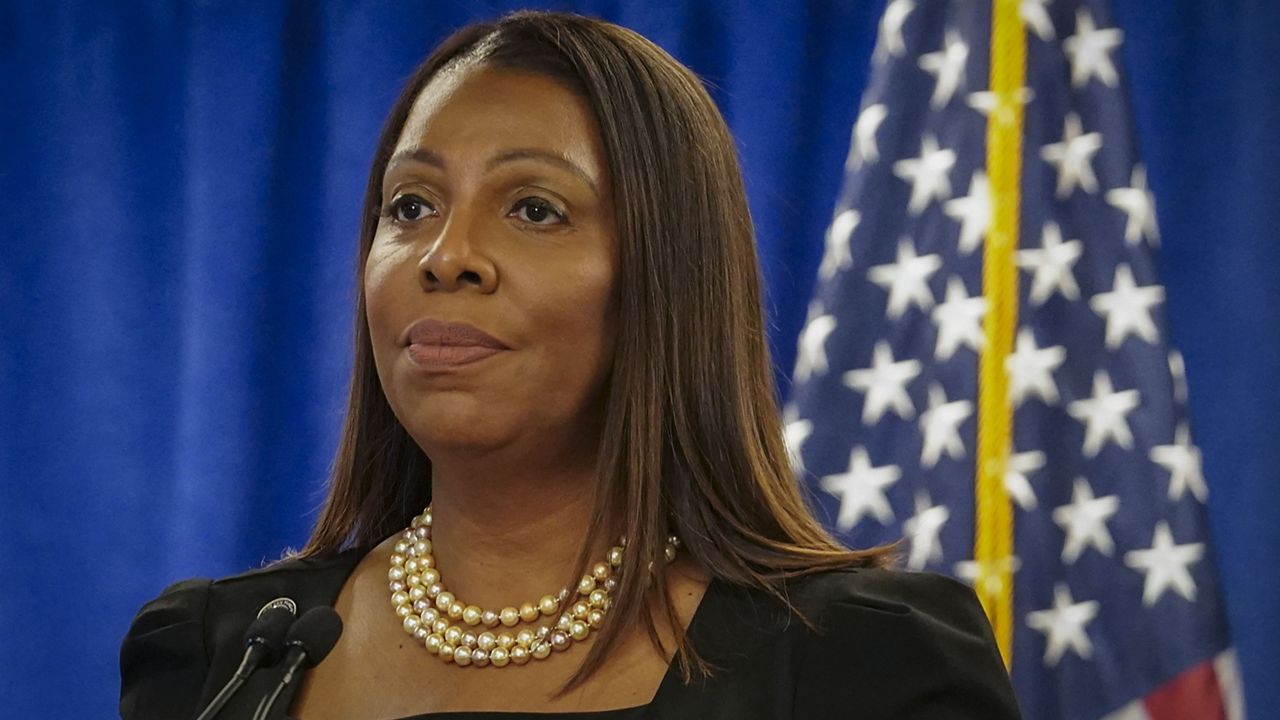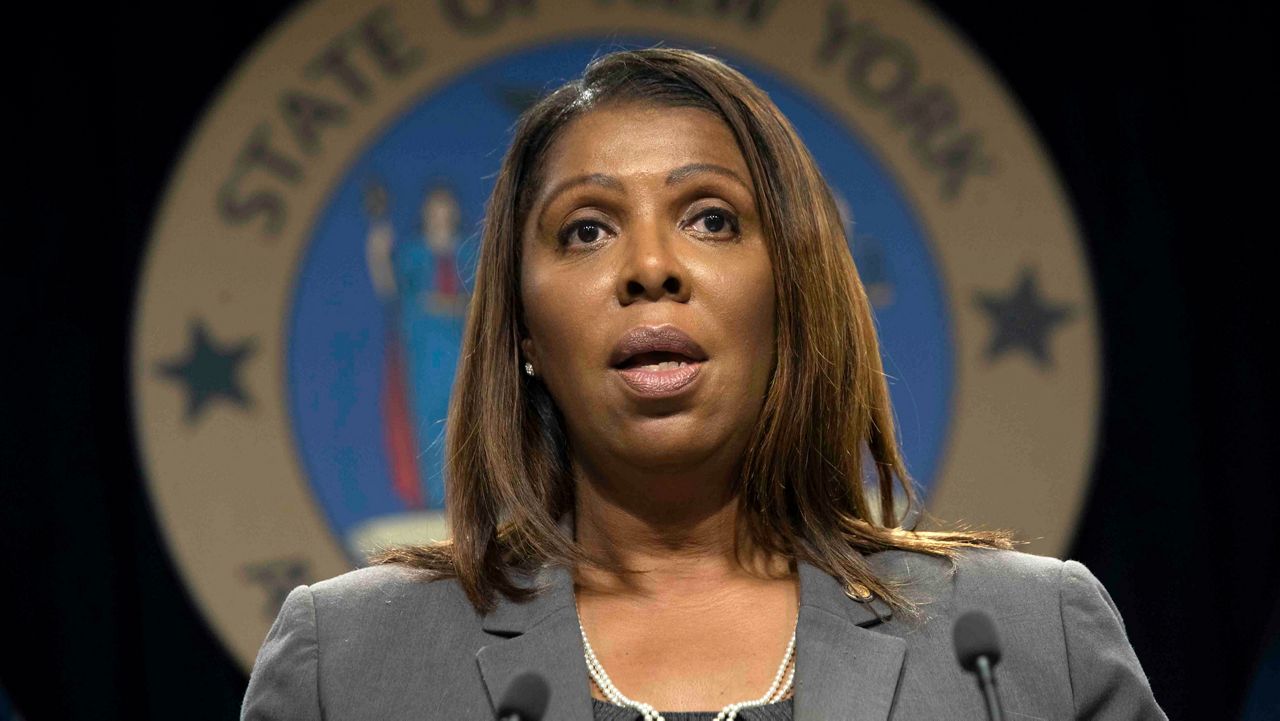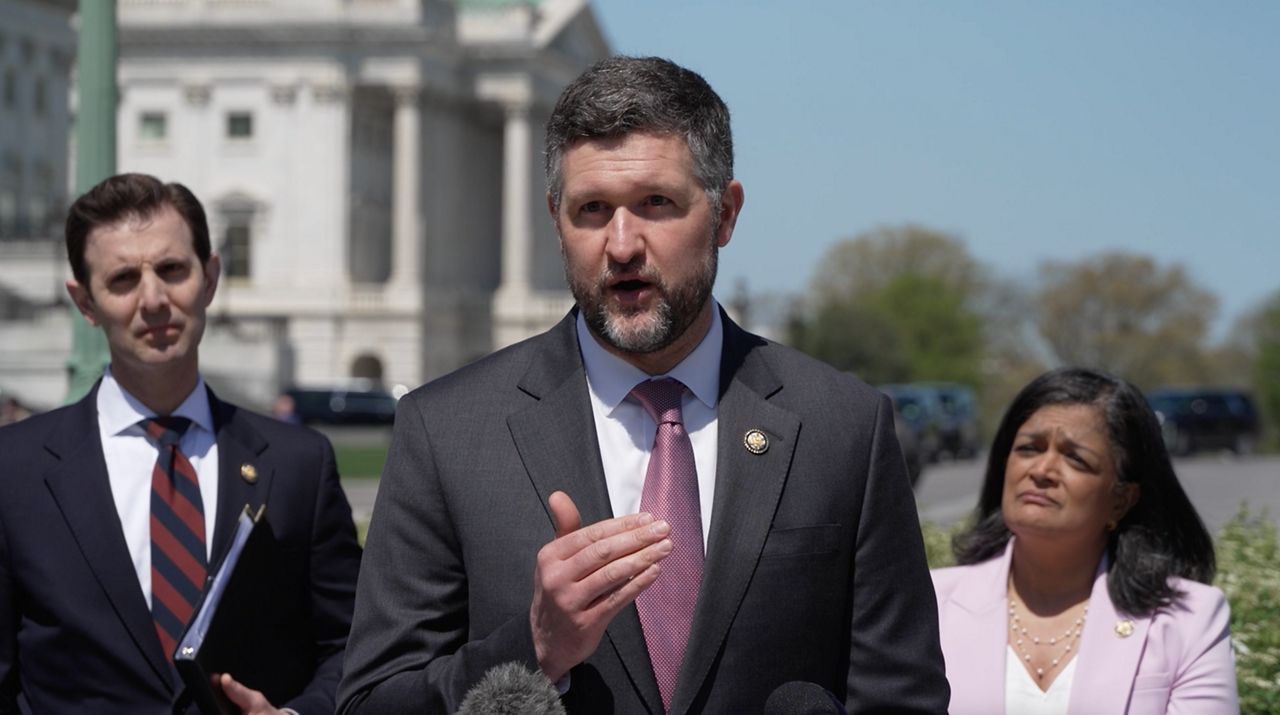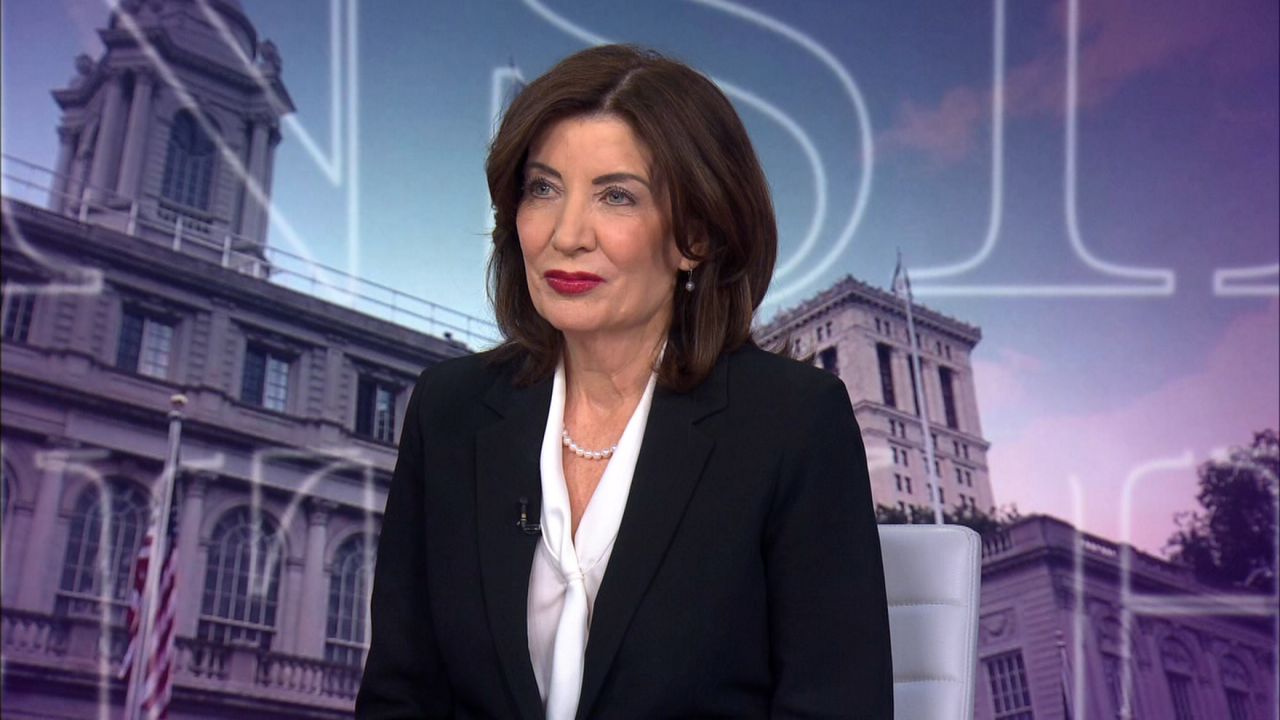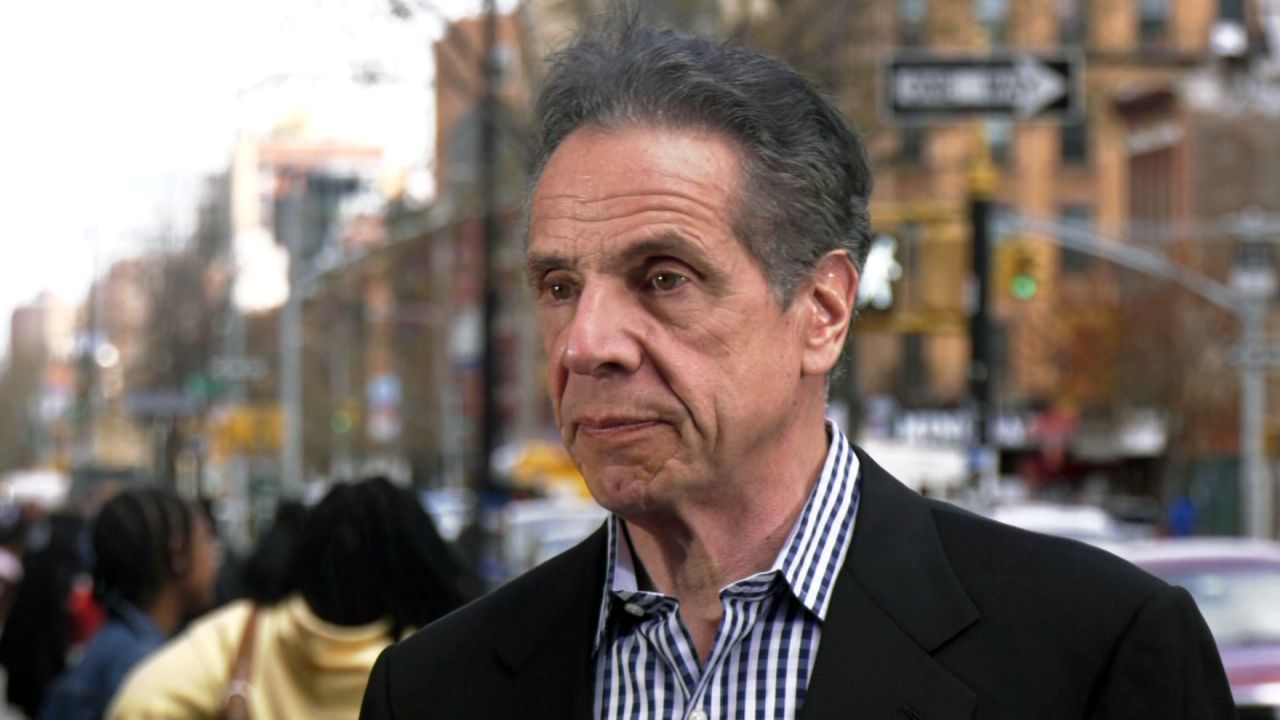As political pressure continues to mount against Mayor Eric Adams to resign, Gov. Kathy Hochul could be the deciding voice within the coming weeks.
She could be considering employing a little-used power that permits her to remove elected officials from office.
What You Need To Know
- Under broad powers cited in the state Constitution and separately, provided in the New York City Charter, the governor has the ability to remove the mayor
- Hochul would need to tell Adams what he’s been charged with, give him an opportunity to respond and then a question and answer, trial period would ensue
- New York saw that play out in 1932 with then-Mayor Jimmy Walker and then-Gov. Franklin Delano Roosevelt
“This is a very serious matter unfolding,” she said during a Thursday event in upstate New York: her initial reaction to the five count criminal indictment faced by Adams.
Then, after reading the allegations that he took bribes and illegal campaign contributions, she said in a statement late Thursday: “This indictment is the latest in a disturbing pattern of events that has, understandably, contributed to a sense of unease among many New Yorkers.”
Then, added a warning:
“New Yorkers deserve to know that their municipal government is working effectively, ethically and in the best interests of the people —driving down crime, educating our kids and ensuring basic city services continue unabated. It’s now up to Mayor Adams to show the City that he is able to lead in that manner.”
But Hochul also has some choices of her own to make.
“Governors in the early 20th century were surprisingly quick to remove officials from New York City,” said Terry Golway, a professor at the College of Staten Island, in an interview with NY1 this week.
Under broad powers cited in the state Constitution and separately, provided in the New York City Charter, the governor has the ability to remove the mayor.
Hochul would need to tell Adams what he’s been charged with, give him an opportunity to respond and then a question-and-answer trial period would ensue.
New York saw that play out in 1932 with then-Mayor Jimmy Walker and then-Gov. Franklin Delano Roosevelt.
“Jimmy Walker was a creature of Tammany Hall,” Golway said.
“So if you look at what was going on in August and September of 1932, people are saying: ‘What is this guy going to do?’” Golway said of the choice faced by Roosevelt. “And what does it tell us about [Roosevelt] if he does X or if he does Y? Well, Walker resolved that himself by resigning on Sept. 1, 1932 and taking a steamship to Europe.”
Hochul might not be ready to tip the scales against the mayor. There are political considerations.
On the state end: neither of the top Black legislative leaders, State Senate Majority Leader Andrea Stewart-Cousins, nor state Assembly Speaker Carl Heastie have commented on the charges.
“Really, it is left to the governor. I think it is something that she must consider, however, this really is in Eric Adams’ hands as well. He can make the decision to resign at any point,” Queens Democratic Assemblyman Zohran Mamdani said. Mamdani is also considering a run for mayor against Adams.
On the national end: Neither U.S. Senate Majority Leader Charles Schumer nor U.S. House Minority Leader Hakeem Jeffries has called on Adams to step down. Critics say pressure will continue.
“Look at the time he has already spent today in court. That is time he cannot spend leading a city of 8.3 million people, a municipal workforce of 300,000 people and on a budget of more than $100 million,” Mamdani said.
Adams pleaded not guilty to all charges on Friday and is due back in court on Oct. 2.






